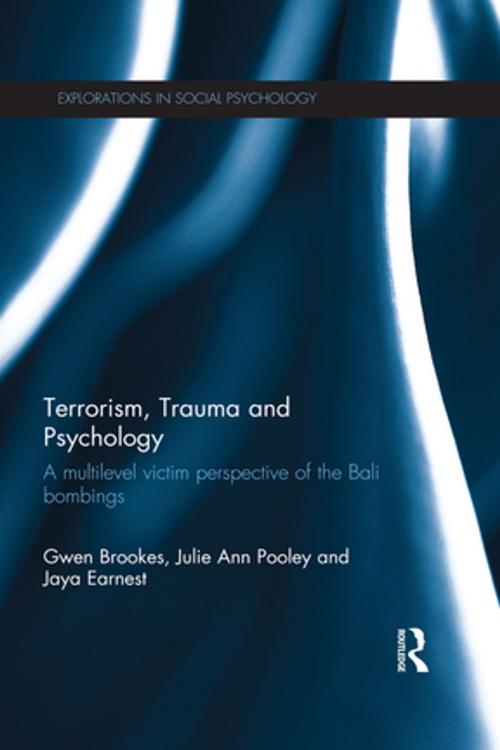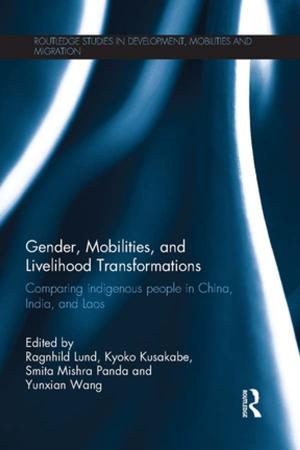Terrorism, Trauma and Psychology
A multilevel victim perspective of the Bali bombings
Nonfiction, Health & Well Being, Psychology, Mental Illness, Social Psychology| Author: | Gwen Brookes, Julie Ann Pooley, Jaya Earnest | ISBN: | 9781317656371 |
| Publisher: | Taylor and Francis | Publication: | November 20, 2014 |
| Imprint: | Routledge | Language: | English |
| Author: | Gwen Brookes, Julie Ann Pooley, Jaya Earnest |
| ISBN: | 9781317656371 |
| Publisher: | Taylor and Francis |
| Publication: | November 20, 2014 |
| Imprint: | Routledge |
| Language: | English |
This book provides a comprehensive insight into the multilayered effects experienced by directly affected victims and their indirectly affected family members following terrorist incidents and other world disasters. Chapters draw primarily on interviews with fifty victims of the Bali bombings, but also consider terrorist incidents including the London and Boston bombings, and disasters such as the Boxing Day tsunami and the Fukusima nuclear disaster.
The book provides a detailed exploration of experiences and perceptions of those involved in the traumatic events, as well as their families, emergency response teams and community volunteers. Chapters discuss community responses to major incidents, appropriate non-medical models of intervention and vulnerable groups that may require special attention. The findings and analysis presented contribute to our understanding of the multilayered effects of terrorism on victims of all levels, and the importance of a planned and informed response, which includes the local community and its wealth of pre-existing resources.
Terrorism, Trauma and Psychology: A multilevel victim perspective of the Bali bombing will be key reading for researchers and academics in the fields of social and clinical psychology, as well as scholars of victimology and terrorism studies.
This book provides a comprehensive insight into the multilayered effects experienced by directly affected victims and their indirectly affected family members following terrorist incidents and other world disasters. Chapters draw primarily on interviews with fifty victims of the Bali bombings, but also consider terrorist incidents including the London and Boston bombings, and disasters such as the Boxing Day tsunami and the Fukusima nuclear disaster.
The book provides a detailed exploration of experiences and perceptions of those involved in the traumatic events, as well as their families, emergency response teams and community volunteers. Chapters discuss community responses to major incidents, appropriate non-medical models of intervention and vulnerable groups that may require special attention. The findings and analysis presented contribute to our understanding of the multilayered effects of terrorism on victims of all levels, and the importance of a planned and informed response, which includes the local community and its wealth of pre-existing resources.
Terrorism, Trauma and Psychology: A multilevel victim perspective of the Bali bombing will be key reading for researchers and academics in the fields of social and clinical psychology, as well as scholars of victimology and terrorism studies.















